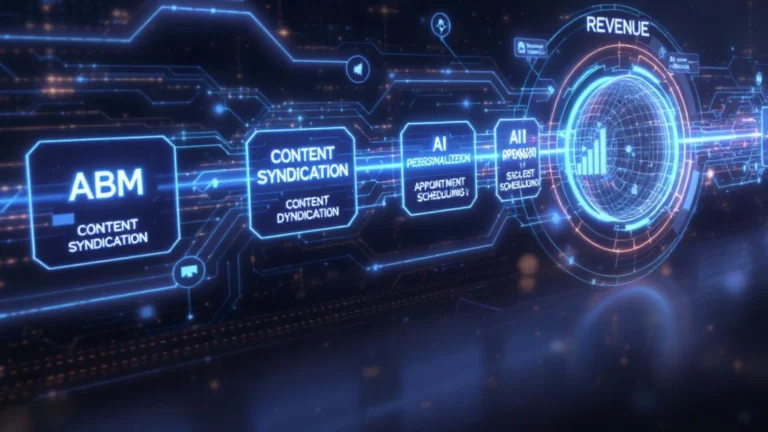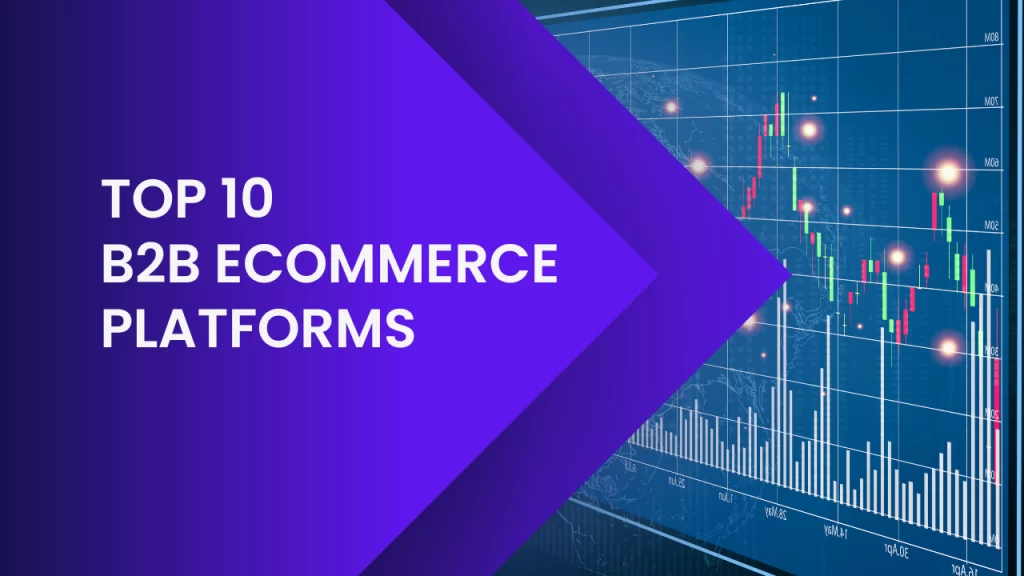Are you struggling to keep up with the constantly changing world of B2B marketing trends ? You’re not alone. In a recent survey, nearly 70% of B2B marketers reported feeling overwhelmed by the number of marketing trends and strategies to keep track of. That’s why we’ve compiled a list of the top B2B marketing trends you need to follow in 2023.
As a B2B marketer, it’s crucial to stay ahead of the curve to remain competitive. According to recent research, companies that prioritize their marketing efforts see an average of a 20% increase in revenue within the first year.
If you’re looking to boost your business’s growth in 2023, it’s essential to familiarize yourself with the top B2B marketing trends. In this blog, we’ll go over the trends that are expected to dominate the market and how you can leverage them to your advantage.
What is B2B Marketing?
B2B marketing, or business-to-business marketing, refers to the marketing of products or services to businesses rather than to individual consumers. For example, a company that sells office supplies might do B2B marketing to other companies that need to purchase those supplies for their own offices.
B2B marketing can be quite different from consumer marketing, as the products or services being sold may be more complex and the target audience (i.e., the businesses making the purchases) may be more specialized.
B2B marketing often involves building long-term relationships with clients and working with them to understand their specific needs and find solutions to their problems.
Some examples of B2B products and services include office supplies, industrial equipment, software, consulting services, marketing services, financial services, and logistics services.
Importance of staying up-to-date with B2B marketing trends
Staying up-to-date with B2B marketing trends is important for several reasons. First and foremost, it helps businesses stay competitive in their industry. As the business world is constantly evolving, it is important for businesses to adapt and stay current in order to remain relevant to their target audience.
This is especially true in the realm of B2B marketing, where companies often rely on technology and innovative marketing strategies to stand out from their competitors.
Additionally, staying up-to-date with B2B marketing trends allows businesses to better understand the needs and preferences of their target audience, which can lead to more effective marketing campaigns and increased customer satisfaction.
Finally, staying current with B2B marketing trends can also help businesses save time and resources by implementing the most effective marketing techniques, rather than outdated or ineffective ones. Overall, staying up-to-date with B2B marketing trends is essential for businesses that want to remain competitive and relevant in today’s fast-paced business world.
B2B Marketing Trends to Watch in 2023
There are several key trends in B2B marketing trends that are expected to continue to evolve and gain momentum in 2023 and beyond.
1. Personalization
B2B buyers expect a personalized experience when interacting with businesses. This means that marketing campaigns should be crafted for the specific needs and interests of the target audience. Personalization can be achieved through the use of data and technology, such as personalized email campaigns and targeted advertising.
Amazon Business’ use of personalized product recommendations and Salesforce’s customized customer journey maps are two great examples of effective B2B personalization campaigns.
To implement personalization in your marketing strategy, consider collecting and analyzing data on your target audience to better understand their needs and preferences. You can also use marketing automation tools to deliver personalized messages and content to your audience.
2. Account-based marketing
ABM is a strategic approach to marketing that focuses on targeted campaigns for specific, high-value accounts. This approach involves aligning sales and marketing efforts to create personalized campaigns for each targeted account.
There are several benefits to using an ABM approach, including increased efficiency and ROI, as well as improved relationships with key accounts.
Examples of companies using ABM successfully include Intel, which used personalized campaigns to target specific accounts, and Salesforce, which used ABM to drive engagement with key accounts.
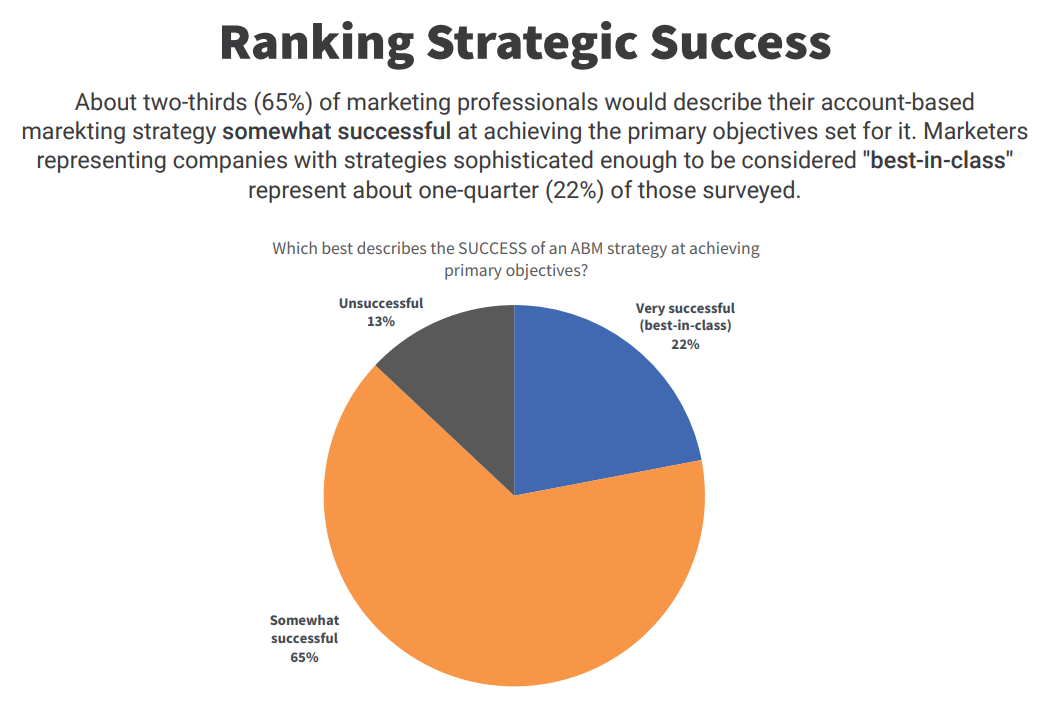
Image Source:- Ascend2
To get started with ABM, identify your target accounts and create personalized campaigns for each one. It’s also important to align your sales and marketing efforts and track your progress to measure the success of your campaigns.

3. Content marketing
High-quality, informative, and valuable content will continue to be a key component of successful B2B marketing. This includes a variety of content formats, such as blog posts, whitepapers, ebooks, webinars, and more. Content marketing can help to establish a brand as a thought leader in its industry, educate potential buyers about the products or services being offered, and drive leads and sales.
According to Databox research, 67% of B2B content teams frequently create top-of-funnel content, Probably because of the majority of attention.
28% claim to provide content for middle-funnel customers (someone ready to buy but need a nudge). Only 5% focus on B2B customers who are just about to make a purchase.
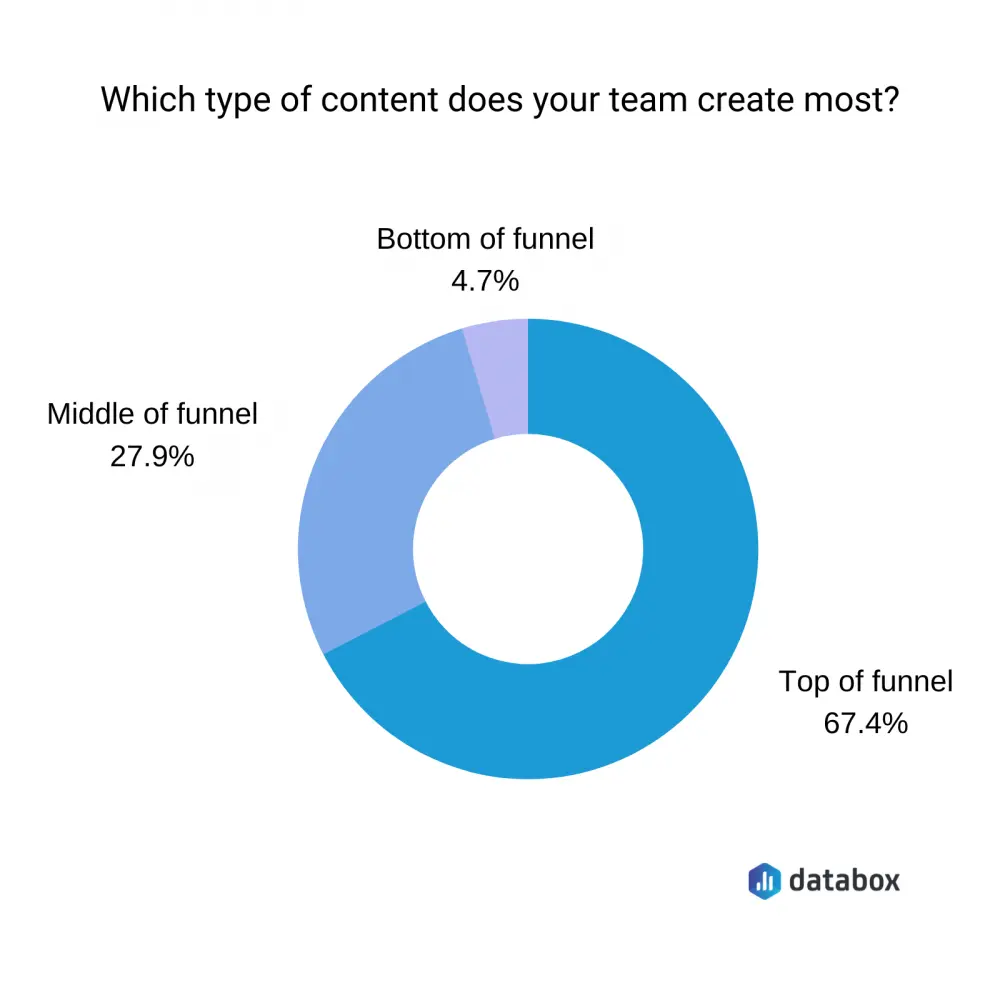
Image Source:- Databox
Examples of successful B2B content marketing campaigns include HubSpot’s Inbound Marketing campaign, IBM’s “Smart Planet” campaign, and Marketo’s “Modern Marketing” campaign.
4. Video marketing
Video is becoming increasingly important in B2B marketing, with many businesses using it to showcase their products or services, explain complex concepts, and tell their brand story.
Video is a powerful medium for engaging and educating B2B buyers, and it is expected to continue to grow in popularity. Video can be used for product demonstrations, explainer videos, customer testimonials, and more. Video is particularly effective at capturing attention and conveying complex information in a more engaging and easily digestible way.
Examples of successful B2B video campaigns include LinkedIn’s use of video case studies to showcase the success of its customers, and GE’s use of video to explain complex concepts in a visually engaging way.
According to Google Reports, The average B2B buyer conducts 12 different online searches before interacting with a website. This shows that a single piece of content is usually not enough. In most cases, getting in front of potential customers in search is necessary. on social networks. and with branded online advertisements.
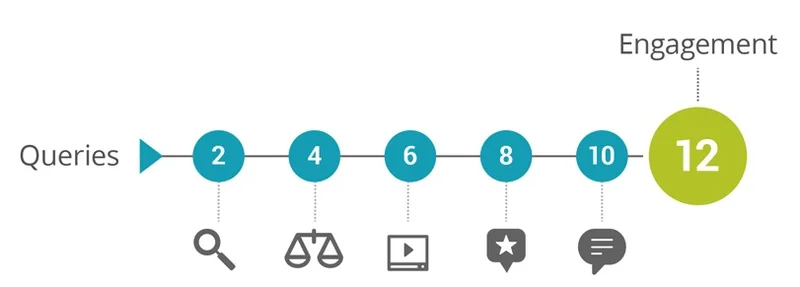
Image Source:- Google
To create effective B2B video content, it’s important to have a clear goal and message, and to keep the video short and to the point. It’s also essential to consider your target audience and the platform on which the video will be shared.
Don’t forget to track the performance of your videos to see what’s working and what’s not.
5. Artificial intelligence and machine learning
Artificial intelligence (AI) and machine learning (ML) are expected to play a more significant role in B2B marketing in the coming years. These technologies can be used to improve personalized communication, optimize marketing campaigns, and better understand customer needs and behavior.
For example, AI can be used to analyze customer data and identify patterns and trends, which can help marketers to create more targeted and effective campaigns. ML can be used to continuously improve the performance of marketing campaigns by adjusting and optimizing based on real-time data.
Many companies are using AI and machine learning in their marketing efforts. One example is HubSpot, which uses machine learning to personalize its marketing campaigns and improve lead generation. Another example is Salesforce, which uses AI to analyze customer data and provide insights that inform its marketing strategies. AI and machine learning are powerful tools that can improve B2B marketing efforts and drive better results. By incorporating these technologies into your marketing strategy, you can deliver more personalized and targeted campaigns, and better understand and engage with your customers.
6. Social media marketing
95% of B2B marketers utilize social media content in some form, making it the most widely-used content type Content Marketing Institute
Social media platforms like LinkedIn, Twitter, and Facebook can be valuable tools for B2B marketers to reach their target audience and engage with potential customers. Social media can be used to share content, participate in industry conversations, and build relationships with potential buyers.
7. Influencer marketing
Partnering with industry influencers can be a highly effective way to reach and engage with B2B buyers. Influencers can help to amplify a brand’s message and provide valuable credibility and trust. Influencer marketing involves identifying and collaborating with individuals who have a strong following in a particular industry and align with the brand’s values and message.
8. Interactive experiences
Interactive experiences, such as virtual events and webinars, are expected to continue to grow in popularity as they offer a way for brands to connect with buyers in a more engaging and interactive way. Virtual events and webinars allow brands to host live events and presentations online, providing an opportunity for attendees to ask questions and engage with the content in real-time. There are several benefits to using interactive content in B2B marketing, including increased engagement and lead generation.
Examples of companies using interactive content effectively include HubSpot, which used a quiz to drive leads, and Geotab, which used an interactive calculator to showcase the ROI of its products.
Consider your target audience’s needs and interests when developing interactive content for your marketing campaigns, and consider how interactive content might help them or add value. It’s also important to promote your interactive content and track its performance to measure its effectiveness.
Final Words
We hope you enjoyed reading about Marketing Trends for B2B Marketers in 2023! Marketing is changing rapidly, and you must keep up with the ways that technology is changing the way companies reach their target audiences.
The key to success in B2B marketing is to understand the needs and behaviors of your target audience and to be able to deliver personalized, valuable, and engaging experiences that meet those needs.
Akash Pandey is an SEO Executive and B2B Content Writer specializing in crafting search-optimized strategies that drive growth. With a knack for blending data-driven insights and engaging content, he enhances online visibility while delivering impactful messaging that resonates with B2B audiences.

